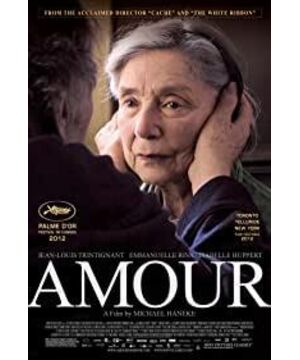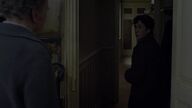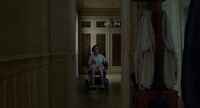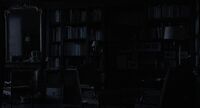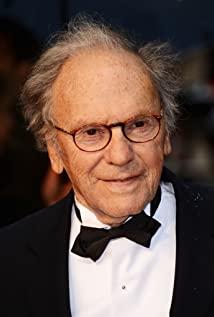This film was made in 2012, and it is because of this film that I came to know Michael Haneke. Later, I also looked for some of the director's works one after another, and I had a preliminary understanding of the cold style of director Haneke's works. This "Love" tells the life experience and psychological process of an elderly couple after the wife's illness and half-body paralysis. The couple, who originally had a good living environment and elegant life taste, suffered from physical weakness due to aging. Caused all kinds of inconveniences in life, and gradually lost the dignity of life, and finally the husband decided to help his wife end her life. The scene setting of the film is relatively simple. Most of the time, the scene is just the apartment where the husband and wife live. At the same time, a lot of details are used to describe the trivial life and the dialogue between words and deeds. The film does not use any soundtrack from beginning to end, only in the plot. The piano music, and even the rolling subtitles at the end of the film, appear quietly in silence, which is also in line with Haneke's consistent style.
The name of the film is "Love", which naturally stems from the deep affection between the old couple. Regarding the definition of "love", I am afraid that everyone will have a different answer in their hearts. There are many people who think that love is some kind of impulse of young people. With the passage of time, the passion of love gradually fades, and love has transformed into family affection in a sense. But at least in my opinion now, I can't fully agree with this point of view, because family love lacks selectivity, and the natural blood connection makes the most important attribute of family relationship support rather than understanding. Even if the daughter in the film has enough knowledge and cultural upbringing, it is difficult to put herself in the shoes of her parents to understand the situation and feelings of her parents. In the film, the daughter suddenly visits and the father perfunctory her is quite wonderful. I have no doubts that this family of three was a very happy family many years ago, but there are many things in life that are difficult to give satisfactory answers even if they are extremely poor. The book mentioned earlier also introduced a large number of cases of elderly people living alone without any kinship or love. Some of them were never married and never had children, and some of them gradually lost contact even if they had children after divorce. They have become completely "undestined people", they have no family, let alone love, so even the tragic ending of the old couple in the film, and those who were not found when they died, who were not claimed after death, and whose ashes had nowhere to go." They are still very lucky. They are supported by family, surrounded by friendship, and most importantly, they have mutual love, which is support and company based on understanding, and has nothing to do with time, so the husband will be between the two When sitting in the kitchen and having breakfast, I tell my wife a story about myself that she doesn't know; I agree to it when my wife wants to be sent to the hospital anyway, and I insist on it; I know my wife doesn't want to suffer like this anymore When a life without dignity is tortured, it is unreasonable to choose to take the initiative to end his wife's life. From the beginning to the end, the husband did not cry, and even rarely moved, he just had a nightmare. He loves his wife so deeply and so thoroughly that it is conceivable that his wife loves him almost as much.
Naturally, in our current environment, whether it is the couple who actively seek death in the film, or the old man who died in the book, it is rare. The former may be because many of us still believe in the life philosophy of "it is better to die than to live". When we are not conscious or intentionally unable to improve the quality of life, maintaining the length of life becomes the natural choice of social people. The latter is due to the fact that under the influence of traditional Confucian culture, family relationships based on family relationships are still the most important social relationship among Chinese people. People who cannot have enough sense of security in real life will naturally not tend to Gradually disengage and become a "missing person".
However, with the material enrichment and spiritual development brought about by social progress, there should be more people slowly slipping to the side of "missing". Humans are animals that naturally seek advantages and avoid disadvantages. To understand and love, naturally It means all kinds of difficulties and pains, just like a "unlucky person" who lives alone in the book said, "Living alone will often feel lonely, and will also worry about the old age, but sometimes it does feel relaxed. Be at ease." This may be the problem of life itself.
View more about Amour reviews


